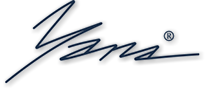
2025 Yana Ltd.
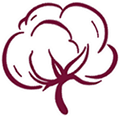
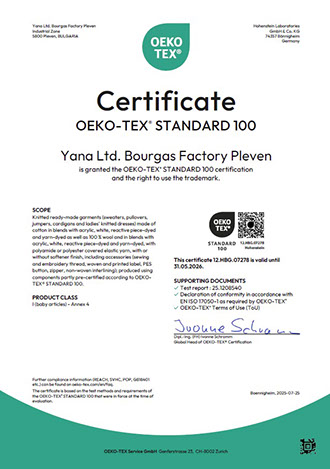
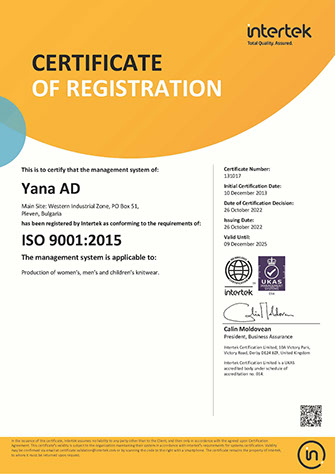
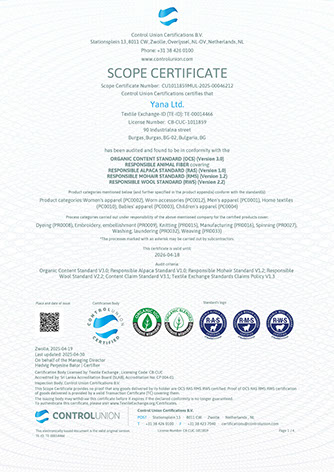
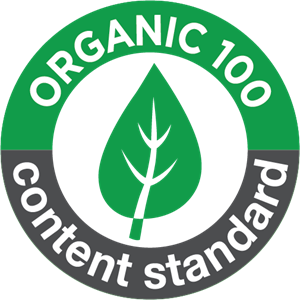
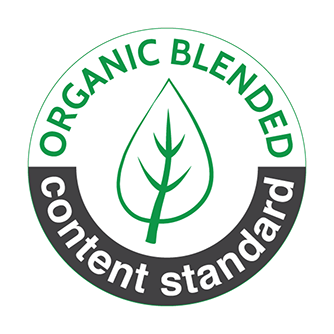
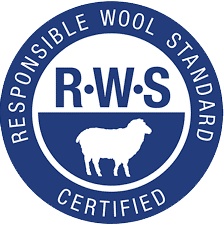
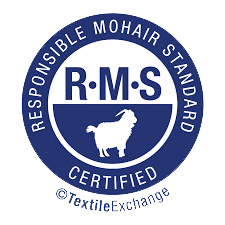
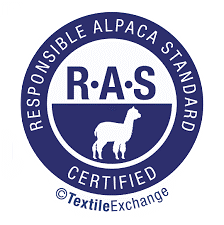








Oeko-Tex
is a registered trade mark, representing the product labels and company certifications issued and other services provided by the International Association for Research and Testing in the Field of Textile and Leather Ecology (which also calls itself Oeko-Tex for short). The Oeko-Tex Association issues the product-related labels Standard 100 by Oeko-Tex (formerly Oeko-Tex Standard 100), Made in Green by Oeko-Tex (formerly Oeko-Tex Standard 100plus) and Leather Standard by Oeko-Tex, the label Eco Passport by Oeko-Tex for chemicals to be used in textile production, and the STeP by Oeko-Tex label (formerly Oeko-Tex Standard 1000) and the Detox to Zero status report for production facilities. Oeko-Tex labels and certificates confirm the human-ecological safety of textile products and leather articles from all stages of production (raw materials and fibres, yarns, fabrics, ready-to-use end products) along the textile value chain. Some also attest to socially and environmentally sound conditions in production facilities.
ISO 9001
is the international standard for a quality management system (“QMS”). In order to be certified to the ISO 9001 standard, a company must follow the requirements set forth in the ISO 9001 Standard. The standard is used by organizations to demonstrate their ability to consistently provide products and services that meet customer and regulatory requirements and to demonstrate continuous improvement.
Control Union Certifications
offers you a global one-stop-shop for a wide range of certification programs. Our certificates are accepted by authorities in nearly every country. Control Union Certifications commits itself to conduct its activities impartially and in a professional manner. CU understands the importance of impartiality in carrying out its certification activities, managing of conflicts of interest and ensuring the objectivity of its management system certification activities.
Organic 100
The Organic Content Standard (OCS) applies to any non-food product containing 95-100 percent organic material. It verifies the presence and amount of organic material in a final product and tracks the flow of the raw material from its source to the final product.
The OCS 100 relies on third-party verification to confirm whether a final product contains the accurate amount of a given organically grown material. OCS allows for transparent, consistent and comprehensive independent evaluation and verification of organic material content claims on products. OCS 100 covers the processing, manufacturing, packaging, labelling, trading and distribution of a product that contains at least 95 percent certified ‘organic’ materials. It can be used as a business-to-business tool to give companies the means to ensure that they are selling quality and getting what they pay for.
Organic Blended
The Organic Content Standard (OCS) applies to any non-food product containing 5-100 percent organic material. It verifies the presence and amount of organic material in a final product. Further OCS tracks the flow of a raw material from its source to the final product. This process is then certified by an accredited third party.
The OCS relies on third-party verification to confirm whether a final product contains the accurate amount of a given organically grown material. OCS allows for transparent, consistent and comprehensive independent evaluation and verification of organic material content claims on products. OCS covers the processing, manufacturing, packaging, labelling, trading and distribution of a product that contains at least 5 percent certified ‘organic’ materials. It can be used as a business-to-business tool to give companies the means to ensure that they are selling quality and getting what they pay for.
Responsible Wool Standard
The Responsible Wool Standard (RWS) provides an opportunity for farmers to demonstrate their best practices to the public, and a means for brands and consumers to have the certainty that the wool products they buy and sell are in line with their values. Control Union Certifications BV is accredited by SLAB for this scheme under registration nr. CP 004-01. The RWS is a voluntary global standard that addresses the welfare of sheep and of the land they graze on. The RWS provides verification of the practices that are happening at farm level, giving brands a clear solution that will allow them to make claims about their wool sourcing with confidence.
Responsible Mohair Standard
The Responsible Mohair Standard (RMS) provides an opportunity for farmers to demonstrate their best practices to the public, and a means for brands and consumers to have the certainty that the mohair products they buy and sell are in line with their values. Control Union Certifications BV is accredited by SLAB for this scheme under registration nr. CP 004-01. The Responsible Mohair Standard addresses animal welfare and environmental responsibility in mohair supply chains. The Responsible Mohair Standard (RMS) is a voluntary standard that requires all sites, from farms through to the seller in the final business- to-business transaction, to be certified. RMS farmers and herders must meet animal welfare, land management, and social requirements.
Responsible Alpaca Standard
The Responsible Alpaca Standard (RAS) provides an opportunity for farmers to demonstrate their best practices to the public, and a means for brands and consumers to have the certainty that the alpaca fiber products they buy and sell are in line with their values. Control Union Certifications BV is accredited by SLAB for this scheme under registration nr. CP 004-01. The Responsible Alpaca Standard safeguards the welfare of alpacas and the ecosystems around them. The Responsible Alpaca Standard (RAS) is a voluntary standard that requires all sites, from alpaca farms through to the seller in the final business-to-business transaction, to be certified. RAS farmers and herders must meet animal welfare, land management, and social requirements.